Fleurs du Mal Magazine


Or see the index
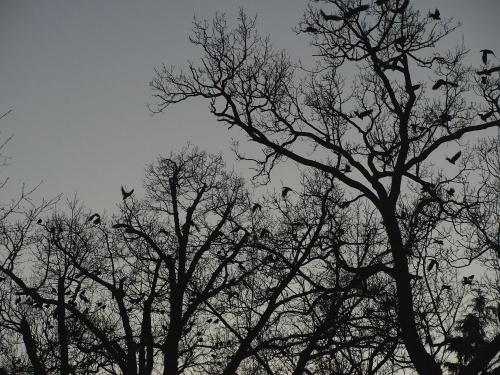
Kolonie
Kauwval in de avond: vrije val naar nesten. Ontrouw
wordt hier niet gedoogd. Ze schijnen op de plattegrond
van het slapen te dolen maar weten feilloos hun weg
boven die dubbele bodems van diepte. Craquelures
in de lucht lijken takken. Nacht weet zich een grens.
© gedicht Bert Bevers 2019
© foto Joep Eijkens 2019
• fleursdumal.nl magazine
More in: Archive A-B, Archive E-F, Bevers & Eijkens, Bevers, Bert, Joep Eijkens Photos
Paper Aeroplane: Selected Poems 1989-2014 by Simon Armitage is the essential selection of poems from one of Britain’s foremost contemporary poets.
 When Simon Armitage burst on to the poetry scene in 1989 with his spectacular debut Zoom!, readers were introduced to an exceptional new talent who would reshape the landscape of contemporary poetry in the years to come.
When Simon Armitage burst on to the poetry scene in 1989 with his spectacular debut Zoom!, readers were introduced to an exceptional new talent who would reshape the landscape of contemporary poetry in the years to come.
Twenty-five years on, Simon Armitage’s reputation as one of the nation’s most original, most respected and best-loved poets seems secure. Paper Aeroplane: Poems 1989-2014 is the author’s own selection from across a quarter-century of work, from his debut to the latest, uncollected work. Drawing upon all of his award-winning poetry collections, including Kid, Book of Matches, The Universal Home Doctor and Seeing Stars, this generous selection provides an essential gathering of this most thrilling of poets, and is key reading for students and general readers alike.
Simon Armitage was born in West Yorkshire and is Professor of Poetry at the University of Leeds. A recipient of numerous prizes and awards, he has published twelve collections of poetry, including Seeing Stars (2010), The Unaccompanied (2017), Sandettie Light Vessel Automatic (2019) and his acclaimed translation of Sir Gawain and the Green Knight (2007). He writes extensively for television and radio, and is the author of two novels and the non-fiction bestsellers All Points North (1998), Walking Home (2012) and Walking Away (2015). His theatre works include The Last Days of Troy, performed at Shakespeare’s Globe in 2014. In 2015 he was appointed Professor of Poetry at Oxford University and in 2018 he was awarded the Queen’s Gold Medal for Poetry. Simon Armitage is Poet Laureate of the UK.
Paper Aeroplane: Selected Poems 1989-2014
by Simon Armitage (Author), Sue Roberts (Author)
2014/2015
Hardback Price £14.99
Paperback Price £10.99
Pages: 248pp
Publisher: Faber and Faber Poetry
Language: English
ISBN-10: 0571310699
ISBN-13: 978-0571310692
# new books
Paper Aeroplane:
Selected Poems 1989-2014
by Simon Armitage (Author)
• fleursdumal.nl magazine
More in: - Book Lovers, - Book News, Archive A-B, Archive A-B, Armitage, Simon
Der Mann ohne Herz
Es sind einmal sieben Brüder gewesen, waren arme Waisen, hatten keine Schwester, mußten alles im Hause selbst tun, das gefiel ihnen nicht, wurden Rates untereinander, sie wollten heiraten. Nun gab es aber da, wo sie wohnten keine Bräute für sie, da sagten die älteren, sie wollten in die Fremde ziehen, sich Bräute suchen und ihr Jüngster sollte das Haus hüten, und dem wollten sie eine 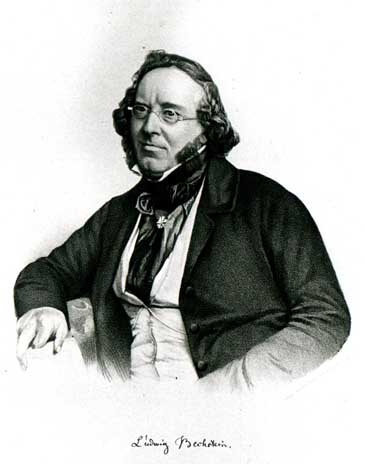 recht schöne Braut mitbringen.
recht schöne Braut mitbringen.
Das war der Jüngste gar wohl zufrieden und die sechse machten sich fröhlich und wohlgemut auf den Weg. Unterwegs kamen sie an ein kleines Häuschen, das stand ganz einsam in einem Walde, und vor dem Häuschen stand ein alter alter Mann, der rief die Brüder an und fragte: »Heda! Ihr jungen Gieke in die Welt! Wohin denn so lustig und so geschwind?« – »Ei, wir wollen uns jeder eine hübsche Braut holen, und unsern jüngsten Bruder daheim auch eine!« antworteten die Brüder.
»O liebe Jungen!« sprach da der Alte: »ich lebe hier so mutterseelensternallein, bringt mir doch auch eine Braut mit, aber eine junge hübsche muß es sein!«
Die Brüder gingen von dannen und dachten: Hm, was will so ein alter eisgrauer Hozelmann mit einer jungen hübschen Braut anfangen? –
Da nun die Brüder in eine Stadt gekommen waren, so fanden sie dort sieben Schwestern, so jung und so hübsch als sie sie nur wünschen konnten, die nahmen sie und die jüngste nahmen sie für ihren Bruder mit. Der Weg führte sie wieder durch den Wald, und der Alte stand wieder vor seinem Häuschen, als wartete er auf sie, und sagte: »Ei ihr braven Jungen! Das lob ich, daß ihr mir so eine junge hübsche Braut mitgebracht habt!« – »Nein!« sagten die Brüder, »die ist nicht für dich, die ist für unsern Bruder zu Hause, den haben wir sie versprochen!« –
»So?« sagte der Alte: »versprochen? Ei daß dich! ich will euch auch versprechen!« und nahm ein weißes Stäbchen und murmelte ein paar Zauberworte, und rührte die Brüder und die Bräute mit dem Stäbchen an – bis auf die jüngste – da wurden sie alle in graue Steine verwandelt. Die jüngste aber von den Schwestern führte der Mann in das Haus, und das mußte sie nun beschicken und in Ordnung halten, tat das auch gern, aber sie hatte immer Angst, der Alte könne bald sterben, und dann werde sie in dem einsamen Häuschen im wilden öden Walde auch so mutterseelensternallein sein, wie der Alte zuvor gewesen war. Das sagte sie ihm und er antwortete: »Hab kein Bangen, fürchte nicht und hoffe nicht, daß ich sterbe. Sieh, ich habe kein Herz in der Brust! stürbe ich aber dennoch, so findest du über der Türe mein weißes Zauberstäbchen, und rührst damit an die grauen Steine, so sind deine Schwestern und ihre Freier befreit und du hast Gesellschaft genug.«
»Wo aber in aller Welt hast du denn dein Herz, wenn du es nicht in der Brust hast?« fragte die junge Braut. »Mußt du alles wissen?« fragte der Alte. »Nun wenn du es denn wissen mußt, in der Bettdecke steckt mein Herz.«
Da nähte und stickte die junge Braut, wenn der Alte fort und seinen Geschäften nachging, in ihrer Einsamkeit gar schöne Blumen auf seine Bettdecke, damit sein Herz eine Freude haben sollte. Der Alte aber lächelte darüber und sagte: »Du gutes Kind, es war ja nur mein Scherz;mein Herz das steckt – das steckt –« »Nun wo steckt es denn lieber Vater?« – »Das steckt in der – Stubentür!« –
Da hat die junge Frau am andern Tage, als der Alte fort war, die Stubentüre gar schön geschmückt mit bunten Federn und frischen Blumen und hat Kränze daran gehangen. Fragte der Alte, als er heimkam, was das bedeuten solle? sagte sie: »Das tat ich, 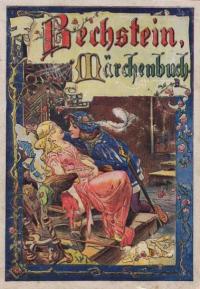 deinem Herzen was zu Liebe zu tun.« Da lächelte wieder der Alte, und sagte: »Gutes Kind, ganz wo anders, als in der Stubentüre, ist mein Herz.« Da wurde die junge Braut sehr betrübt, und sprach: »Ach Vater, so hast du doch ein Herz, und kannst sterben und ich werde dann so allein sein.« Da wiederholte der Alte alles, was er ihr schon zweimal gesagt, und sie drang aufs neue in ihn, ihr zu sagen, wo doch eigentlich sein Herz sei? Da sprach der Alte: »Weit weit von hier liegt in tiefer Einsamkeit eine große uralte Kirche, die ist fest verwahrt mit eisernen Türen, um sie ist ein tiefer Wallgraben gezogen, über den führt keine Brücke, und in der Kirche da fliegt ein Vogel wohl ab und auf, der ißt nicht und trinkt nicht und stirbt nicht, und niemand vermag ihn zu fangen und so lange der Vogel lebt, so lange lebe auch ich, denn in dem Vogel ist mein Herz.«
deinem Herzen was zu Liebe zu tun.« Da lächelte wieder der Alte, und sagte: »Gutes Kind, ganz wo anders, als in der Stubentüre, ist mein Herz.« Da wurde die junge Braut sehr betrübt, und sprach: »Ach Vater, so hast du doch ein Herz, und kannst sterben und ich werde dann so allein sein.« Da wiederholte der Alte alles, was er ihr schon zweimal gesagt, und sie drang aufs neue in ihn, ihr zu sagen, wo doch eigentlich sein Herz sei? Da sprach der Alte: »Weit weit von hier liegt in tiefer Einsamkeit eine große uralte Kirche, die ist fest verwahrt mit eisernen Türen, um sie ist ein tiefer Wallgraben gezogen, über den führt keine Brücke, und in der Kirche da fliegt ein Vogel wohl ab und auf, der ißt nicht und trinkt nicht und stirbt nicht, und niemand vermag ihn zu fangen und so lange der Vogel lebt, so lange lebe auch ich, denn in dem Vogel ist mein Herz.«
Da wurde die Braut traurig, daß sie dem Herzen ihres Alten nichts zu Liebe tun konnte, und die Zeit wurde ihr lang, wenn sie so allein saß, denn der Alte war fast den ganzen Tag auswärts.
Da kam einmal ein junger Wandergesell am Häuschen vorüber, der grüßte sie und sie grüßte ihn und sie gefiel ihm, und er kam näher und sie fragte ihn, wohin er reise, woher er komme? – »Ach!« seufzte der junge Gesell: »Ich bin gar traurig. Ich hatte noch sechs Brüder, die sind von dannen gezogen sich Bräute zu holen und mir, dem Jüngsten, wollten sie auch eine mitbringen, sind aber nimmer wieder gekommen, und da bin ich nun auch fort vom Hause, und will meine Brüder suchen.«
»Ach lieber Gesell!« rief die Braut: »da brauchst du nicht weiter zu gehen! Erst setze dich und iß und trinke etwas, und dann laß dir erzählen!« Und gab ihm zu essen und zu trinken, und erzählte ihm, wie seine Brüder in die Stadt gekommen, und wie sie ihre Schwestern und sie selbst als Bräute mit sich nach Hause hätten führen wollen, und daß sie für ihn, ihren Gast, bestimmt gewesen, und wie der Alte sie bei sich behalten, und die andern in graue Steine verwandelt habe. Das alles erzählte sie ihm aufrichtig und weinte dazu, und auch daß der Alte kein Herz in der Brust habe und daß es weit weit weg sei in einer festen Kirche und in einem unsterblichen Vogel. Da sagte der Bräutigam: »Ich will fort, ich will den Vogel suchen, vielleicht hilft mir Gott, daß ich ihn fange.« – »Ja das tue, daran wirst du wohl tun, dann werden deine Brüder und meine Schwestern wieder Menschen werden!« und versteckte den Bräutigam, denn es wurde schon Abend, und als am andern Morgen der Alte wieder fort war, da packte sie dem Wandergesellen viel zu essen und zu trinken ein, und gab es ihm mit, und wünschte ihm alles Glück und Gottes Segen auf seine Fahrt.
Als nun der Gesell eine tüchtige Strecke gegangen war, deuchte ihm, es sei wohl Zeit zu frühstücken, packte seine Reisetasche aus, freute sich der vielen Gaben und rief: »Holla! nun wollen wir schmausen! herbei, wer mein Gast sein will!«
Da rief es hinter dem Gesellen: »Muh!« und wie er sich umsah, stand ein großer roter Ochse da und sprach: »Du hast eingeladen, ich möchte wohl dein Gast sein!« – »Sei willkommen und lange zu, so gut ich’s habe!« Da legte sich der Ochse gemächlich an den Boden, und ließ sich’s schmecken, und leckte sich dann mit der Zunge sein Maul recht schön ab, und als er satt war, sagte er: »Habe du großen Dank und wenn du einmal jemand brauchst, dir in Not und Gefahr zu helfen, so rufe nur in Gedanken nach mir, deinem Gast.« Und erhob sich und verschwand im Gebüsch. Der Gesell packte seine Tafelreste zusammen und pilgerte weiter; wieder eine tüchtige Strecke, da deuchte ihm nach dem kurzen Schatten den er warf, es müsse Mittag sein, und seinem Magen deuchte das nämliche. Da setzte er sich an den Boden hin, breitete sein Tafeltuch aus, setzte seine Speisen und Getränke darauf, und rief: »Wohlan! Mittagmahlzeit! Jetzt melde sich, was mittafeln will!« Da rauschte es ganz stark in den Büschen, und es brach ein wildes Schwein heraus, das grunzte: »Qui oui oui«, und sagte: »Es hat hier jemand zum Essen gerufen! Ich weiß nicht ob du es warst, und ob ich gemeint bin?«
»Immerhin, lange nur zu, was da ist!« sprach der Wandersmann und da aßen sie beide wohlgemut miteinander und schmeckte beiden gut. Darauf erhob sich das wilde Schwein und sagte: »Habe Dank, bedarfst du mein so rufe dem Schwein!« und damit trollte es in die Büsche. Nun wanderte der Gesell gar eine lange Strecke, und war schon gar weit gewandert, da wurde es gegen Abend, und er fühlte wieder Hunger und hatte auch noch Vorrat, und da dachte er: wie wär es mit dem Vespern? Zeit wär es dächt ich; und breitete wieder sein Tuch aus und legte seine Speisen darauf, hatte auch noch etwas zu trinken, und rief: »Wer Lust hat mit zu essen, der soll eingeladen sein. Es ist nicht, als wenn nichts da wäre!« Da rauschte über ihm ein schwerer Flügelschlag und wurde dunkel auf dem Boden, wie vom Schatten einer Wolke, und es ließ sich ein großer Vogel Greif sehen, der rief: »Ich hörte jemand hier unten zur Tafel einladen! Für mich wird wohl nichts abfallen?«
»Warum denn nicht? Lasse dich nieder und nimm vorlieb, viel wird’s nicht mehr sein!« rief der Jüngling, und da ließ sich der Vogel Greif nieder und aß zur Genüge und dann sagte er: »Brauchst du mich, so rufe mich!« hob sich in die Lüfte und verschwand. Ei, dachte der Geselle: der hat’s recht eilig; er hätte mir wohl den Weg nach der Kirche zeigen können, denn so finde ich sie wohl  nimmer und raffte seine Sachen zusammen, und wollte vor dem Schlafengehen noch ein Stückchen wandern. Und wie er gar nicht lange gegangen war, so sah er mit einem Male die Kirche vor sich liegen und war bald bei ihr, das heißt, am breiten und tiefen Graben, der sie rings ohne Brücke umzog. Da suchte er sich ein hübsches Ruheplätzchen, denn er war müde von dem weiten Weg und schlief, und am andern Morgen da wünschte er sich über den Graben und dachte: Schau, wenn der rote Ochse da wär und hätte rechten Durst, so könnte der den Graben aussaufen und ich käme trocken hinüber. Kaum war dieser Wunsch getan, so stand der Ochse schon da und begann den Graben auszusaufen. Nun stand der Gesell an der Kirchenmauer, die war gar dick und die Türme waren von Eisen, da dachte er so in seinen Gedanken: ach, wer doch einen Mauerbrecher hätte! Das starke wilde Schwein könnte vielleicht hier eher etwas ausrichten, als ich. Und siehe, gleich kam das wilde Schwein daher gerannt und stieß heftig an die Mauer und wühlte mit seinen Hauern einen Stein los, und wie erst einer los war, so wühlte es immer mehr und immer mehr Steine aus der Mauer, bis ein großes tiefes Loch gewühlt war, durch das man in die Kirche einsteigen konnte. Da stieg nun der Jüngling hinein, und sah den Vogel darin herumfliegen, vermochte aber nicht ihn zu ergreifen. Da sprach er: »Wenn jetzt der Vogel Greif da wäre, der würde dich schon greifen, dafür ist er ja der Vogel Greif!« Und gleich war der Greif da und gleich griff er den Vogel, in dem des alten Mannes Herz war, und der junge Gesell verwahrte selbigen Vogel sehr gut, der Vogel Greif aber flog davon.
nimmer und raffte seine Sachen zusammen, und wollte vor dem Schlafengehen noch ein Stückchen wandern. Und wie er gar nicht lange gegangen war, so sah er mit einem Male die Kirche vor sich liegen und war bald bei ihr, das heißt, am breiten und tiefen Graben, der sie rings ohne Brücke umzog. Da suchte er sich ein hübsches Ruheplätzchen, denn er war müde von dem weiten Weg und schlief, und am andern Morgen da wünschte er sich über den Graben und dachte: Schau, wenn der rote Ochse da wär und hätte rechten Durst, so könnte der den Graben aussaufen und ich käme trocken hinüber. Kaum war dieser Wunsch getan, so stand der Ochse schon da und begann den Graben auszusaufen. Nun stand der Gesell an der Kirchenmauer, die war gar dick und die Türme waren von Eisen, da dachte er so in seinen Gedanken: ach, wer doch einen Mauerbrecher hätte! Das starke wilde Schwein könnte vielleicht hier eher etwas ausrichten, als ich. Und siehe, gleich kam das wilde Schwein daher gerannt und stieß heftig an die Mauer und wühlte mit seinen Hauern einen Stein los, und wie erst einer los war, so wühlte es immer mehr und immer mehr Steine aus der Mauer, bis ein großes tiefes Loch gewühlt war, durch das man in die Kirche einsteigen konnte. Da stieg nun der Jüngling hinein, und sah den Vogel darin herumfliegen, vermochte aber nicht ihn zu ergreifen. Da sprach er: »Wenn jetzt der Vogel Greif da wäre, der würde dich schon greifen, dafür ist er ja der Vogel Greif!« Und gleich war der Greif da und gleich griff er den Vogel, in dem des alten Mannes Herz war, und der junge Gesell verwahrte selbigen Vogel sehr gut, der Vogel Greif aber flog davon.
Nun eilte der Jüngling so sehr er konnte zur jungen Braut, kam noch vor Abends an und erzählte ihr alles, und sie gab ihm wieder zu essen und zu trinken und hieß ihn unter die Bettstelle kriechen mitsamt seinem Vogel, damit ihn der Alte nicht sähe. Dies tat er alsbald, nachdem er gegessen und getrunken hatte; der Alte kam nach Hause und klagte, daß er sich krank fühle, daß es nicht mehr mit ihm fortwolle – das mache, weil sein Herzvogel gefangen war. Das hörte der Bräutigam unter dem Bette und dachte, der Alte hat dir zwar nichts Böses getan, aber er hat deine Brüder und ihre Bräute verzaubert, und deine Braut hat er für sich behalten, das ist des Bösen nicht zu wenig, und da kneipte er den Vogel, und da wimmerte der Alte: »Ach, es kneipt mich! Ach, der Tod kneipt mich, Kind – ich sterbe!« Und fiel vom Stuhl und war ohnmächtig, und ehe sich’s der Jüngling versah, hatte er den Vogel totgekneipt, und da war es aus mit dem Alten. Nun kroch er hervor, und die Braut nahm den weißen Stab, wie ihr der Alte gelehrt hatte, und schlug damit an die zwölf grauen Steine, siehe, da wurden sie wieder die sechs Brüder und die sechs Schwestern, das war eine Freude und ein Umarmen und Herzen und Küssen, und der alte Mann war tot und blieb tot, konnt ihn keine Meisterwurz wieder lebendig machen, wenn sie ihn auch hätten wieder lebendig haben wollen. Da zogen sie alle miteinander fort, und hielten Hochzeit miteinander und lebten gut und glücklich miteinander lange Jahre.
Ludwig Bechstein
(1801 – 1860)
Der Mann ohne Herz
Sämtliche Märchen
• fleursdumal.nl magazine
More in: Archive A-B, Bechstein, Bechstein, Ludwig
Profound meditations on life, death, freedom, family, and faith, written by radical Black journalist, Mumia Abu-Jamal, while he was awaiting his execution.
 During the spring of 1996, black journalist Mumia Abu-Jamal was living on death row and expecting to be executed for a crime he steadfastly maintained he did not commit—the murder of a white Philadelphia police officer. It was in that period, with the likelihood of execution looming over him, that he received visits from members of the Bruderhof spiritual community––refugees from Hitler’s Germany––anti-fascist, anti-racist, and deeply opposed to the death penalty. Inspired by the encounters, Mumia hand-wrote Death Blossoms—a series of short essays and personal vignettes reflecting on his search for spiritual meaning, freedom, and truth in a deeply racist and materialistic society.
During the spring of 1996, black journalist Mumia Abu-Jamal was living on death row and expecting to be executed for a crime he steadfastly maintained he did not commit—the murder of a white Philadelphia police officer. It was in that period, with the likelihood of execution looming over him, that he received visits from members of the Bruderhof spiritual community––refugees from Hitler’s Germany––anti-fascist, anti-racist, and deeply opposed to the death penalty. Inspired by the encounters, Mumia hand-wrote Death Blossoms—a series of short essays and personal vignettes reflecting on his search for spiritual meaning, freedom, and truth in a deeply racist and materialistic society.
Featuring a new introduction by Mumia and a report by Amnesty International detailing how his trial was “in violation of minimum international standards,” this new edition of Death Blossoms is essential reading for the Black Lives Matter era, and is destined to endure as a classic in American prison literature.
“In this revised edition of his groundbreaking work, Death Blossoms, convicted death row prisoner Mumia Abu-Jamal tackles hard and existential questions, searching for God and a greater meaning in a caged life that may be cut short if the state has its way and takes his life. As readers follow Mumia’s journey through his poems, short essays, and longer musings, they will learn not only about this singular individual who has retained his humanity despite the ever present threat of execution, but also about themselves and our society: what we are willing to tolerate and who we are willing to cast aside. If there is any justice, Mumia will prevail in his battle for his life and for his freedom.”––Lara Bazelon, author of Rectify: The Power of Restorative Justice After Wrongful Conviction
“Mumia Abu-Jamal has challenged us to see the prison at the center of a long history of US oppression, and he has inspired us to keep faith with ordinary struggles against injustice under the most terrible odds and circumstances. Written more than two decades ago, Death Blossoms helps us to see beyond prison walls; it is as timely and as necessary as the day it was published.”––Nikhil Pal Singh, founding faculty director of the NYU Prison Eduction Program, author of Race and America’s Long War.
Title: Death Blossoms
Subtitle: Reflections from a Prisoner of Conscience, Expanded Edition
Author: Mumia Abu-Jamal
Foreword: Cornel West
Introduction by Mumia Abu-Jamal
Preface by Julia Wright
Publisher: City Lights Publishers
Tags: African American history, black lives matter, black panther party, death row, injustice, institutional injustice, mass incarceration, prison industrial complex, prison writing, racial injustice, U.S. political prisoners, white supremacy
Format: Paperback
ISBN-10 0872867978
ISBN-13 9780872867970
Publication Date; 12 November 2019
Main content page count 240
List Price $16.95
# new books
Mumia Abu-Jamal
Death Blossoms
Reflections from a Prisoner of Conscience
• fleursdumal.nl magazine
More in: #Editors Choice Archiv, - Book Lovers, - Book News, Archive A-B, Archive A-B, CRIME & PUNISHMENT, REPRESSION OF WRITERS, JOURNALISTS & ARTISTS
A vast cultural movement is emerging from outside the Western world. Truly global in its range and allure, it is the biggest challenge yet to Hollywood, McDonald’s, blue jeans, and other aspects of American mass-produced popular culture. This is a book about the new arbiters of mass culture ―India’s Bollywood films, Turkey’s soap operas, or dizi, and South Korea’s pop music.
 Carefully packaging not always secular modernity, combined with traditional values, in urbanized settings, they have created a new global pop culture that strikes a deeper chord than the American version, especially with the many millions who are only just arriving in the modern world and still negotiating its overwhelming changes.
Carefully packaging not always secular modernity, combined with traditional values, in urbanized settings, they have created a new global pop culture that strikes a deeper chord than the American version, especially with the many millions who are only just arriving in the modern world and still negotiating its overwhelming changes.
Fatima Bhutto, an indefatigable reporter and vivid writer, profiles Shah Rukh Khan, by many measures the most popular star in the world; goes behind the scenes of Magnificent Century, Turkey’s biggest dizi, watched by more than 200 million people across 43 countries; and travels to South Korea to see how K-Pop started. Bhutto’s book is an important dispatch from a new, multipolar order that is taking form before our eyes.
Fatima Bhutto was born in Kabul, Afghanistan and grew up between Syria and Pakistan. She is the author of five previous books of fiction and nonfiction. Her debut novel, The Shadow of the Crescent Moon, was long listed for the Bailey’s Women’s Prize for Fiction and the memoir about her father’s life and assassination, Songs of Blood and Sword, was published to acclaim. Her most recent book is The Runaways, a novel.
She graduated from Barnard with a degree in Middle Eastern Languages and Cultures and has a masters in South Asian Government and politics from SOAS.
New Kings of the World: Dispatches from Bollywood, Dizi, and K-Pop
by Fatima Bhutto
Product details
Paperback: 206 pages
Publisher: Columbia Global Reports
Language: English
ISBN-10: 1733623701
ISBN-13: 978-1733623704
Product Dimensions: 5.2 x 0.8 x 7.8 inches
#68 in Communication & Media Studies
#110 in Popular Culture in Social Sciences
#132 in Pop Culture Art
Price: $15.99
E-Book price: $15.99
E-book ISBN: 978-1-7336237-1-1
On Sale: September 24, 2019
Pages: 207
# more books
Fatima Bhutto:
New Kings of the World: Dispatches from Bollywood, Dizi, and K-Pop
• fleursdumal.nl magazine
More in: - Book News, - Book Stories, Archive A-B, AUDIO, CINEMA, RADIO & TV, BEAT GENERATION, EXPRESSIONISM, DADA & DE STIJL, SURREALISM, Fatima Bhutto, LITERARY MAGAZINES

Cour
Brieven zweven gangen in vol leugens zonder
wonden, op iedere verdieping. Zicht daarop
vanaf de binnenplaats. Binnen zeggen spiegels:
Geen mens. Naar buiten wordt niet gekeken. Er
gaat een ochtend volgen om nimmer te vergeten.
Bert Bevers
Ongepubliceerd
Juli 2019
• fleursdumal.nl magazine
More in: Archive A-B, Archive A-B, Bevers, Bert
Die schöne junge Braut
Es ging einmal ein hübsches Landmädchen in den Wald, um Futter für ihre Kuh zu holen; wie sie nun in Gottes Namen grasete und an gar nichts Arges dachte, so kamen auf einmal vier Räuber, umringten sie und führten sie mit sich fort, ohne Gnad und Barmherzigkeit, sie mochte schreien und zappeln, bitten und betteln so viel sie wollte. Weit ab von des Mädchens Heimat in einem finstern Walde hatten die Räuber ein Haus, worin sie sich aufhielten, wenigstens blieben immer einige daheim, wenn die andern auf Raub auszogen. Dem Mädchen taten aber die Räuber weiter nichts zu Leide, als daß sie sie eben aus ihrer Heimat fortführten, und sie in dem Hause gleichsam gefangen hielten; sie mußte den Haushalt besorgen, kochen, backen und waschen, sonst hatte sie es gut, wurde aber immer scharf bewacht. Dabei hatten ihr die Räuber den Namen gegeben: Schöne junge Braut.
So war nun das Mädchen schon einige Jahre in der Räuberherberge, als es sich einmal traf, daß ein Hauptraub ausgeführt werden sollte, an dem, wenn er gelingen sollte, die ganze helle Bande teilnehmen mußte.
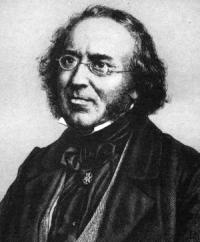 Da das Mädchen sich an das Leben in der Räuberhöhle gewöhnt zu haben schien, auch noch keinen Versuch zu entfliehen gemacht hatte, und auch schwerlich durch den wilden Wald die Wege finden würde – so dachte der Hauptmann – so blieb sie diesesmal allein und unbewacht im Waldhause zurück. Aber die Räuber waren kaum fort, so sann die schöne Braut darauf, wie sie unerkannt entfliehen könne. Sie machte geschwind eine Gestalt von Stroh, zog derselben ihre Kleider an, setzte ihr ihre Haube auf, sich selbst aber bestrich sie von Kopf bis zu den Füßen mit Honig, wälzte sich darauf über und über in Federn, so daß sie ganz unkennbar wurde, und aussah, wie ein seltsamer Vogel. Die Gestalt in ihren Kleidern lehnte sie an ein Fenster über der Haustür, und ließ sie hinaussehen, doch mit verdecktem Gesicht, und dann eilte sie von dannen.
Da das Mädchen sich an das Leben in der Räuberhöhle gewöhnt zu haben schien, auch noch keinen Versuch zu entfliehen gemacht hatte, und auch schwerlich durch den wilden Wald die Wege finden würde – so dachte der Hauptmann – so blieb sie diesesmal allein und unbewacht im Waldhause zurück. Aber die Räuber waren kaum fort, so sann die schöne Braut darauf, wie sie unerkannt entfliehen könne. Sie machte geschwind eine Gestalt von Stroh, zog derselben ihre Kleider an, setzte ihr ihre Haube auf, sich selbst aber bestrich sie von Kopf bis zu den Füßen mit Honig, wälzte sich darauf über und über in Federn, so daß sie ganz unkennbar wurde, und aussah, wie ein seltsamer Vogel. Die Gestalt in ihren Kleidern lehnte sie an ein Fenster über der Haustür, und ließ sie hinaussehen, doch mit verdecktem Gesicht, und dann eilte sie von dannen.
Mochte es aber nun sein, daß dem Hauptmann eine Ahnung von des Mädchens beabsichtigter Flucht kam, oder daß etwas vergessen worden war, genug, er sandte einige seiner Räuber nach dem Hause zurück, und gerade mußte es sich treffen, daß ihnen auf ihrem Wege das fiedrige Käuzlein aufstieß. Sie dachten aber es wäre einer ihrer Kumpane, der sich unkenntlich gemacht hätte, und riefen die Gestalt lachend und fragend an:
»Wohin, wohin, Herr Federsack?
Was macht die schöne junge Braut?«
Diese, die es selbst war, war zwar sehr erschrocken, doch faßte sie sich ein Herz und antwortete mit verstellter Stimme:
»Sie fegt und säubert unser Haus
Und schaut wohl auch zum Fenster heraus!«
Damit machte sie, daß sie den Räubern aus dem Gesichte kam, kam auch glücklich aus dem Walde,  erreichte ein Dorf, kaufte sich Kleider, badete sich und erlangte glücklich und wohlbehalten, obschon nach langer Wanderung, ihre Heimat wieder, und da sie nicht gerade das Beste in der Räuberherberge zurückgelassen hatte, sondern für ihren Jahrlohn mitgehen heißen, so hatte sie auch wohl zu leben und heiratete einen wackern Burschen.
erreichte ein Dorf, kaufte sich Kleider, badete sich und erlangte glücklich und wohlbehalten, obschon nach langer Wanderung, ihre Heimat wieder, und da sie nicht gerade das Beste in der Räuberherberge zurückgelassen hatte, sondern für ihren Jahrlohn mitgehen heißen, so hatte sie auch wohl zu leben und heiratete einen wackern Burschen.
Jene Räuber, wie die nun des Hauses ansichtig wurden, sahen die Gestalt der schönen jungen Braut am Fenster und grüßten schon von weitem, indem sie riefen:
»Grüß Gott, o schöne junge Braut,
Die freundlich uns entgegenschaut.«
Da aber der Gruß unerwidert blieb, so verwunderten sich die Räuber, und als sie näher kamen, vermeinten sie, die schöne junge Braut sei eingeschlafen. Vergebens riefen sie, sie ermunterte sich nicht; vergebens geboten sie ihr, zu öffnen, alle ihr Pochen und Schreien, Rufen und Schelten war erfolglos, und wütend traten sie zuletzt die Türe in Trümmern, stürmten die Treppe hinauf und faßten die Gestalt der schönen jungen Braut hart an, da fiel ihnen die Strohpuppe in die Arme. Da riefen die Räuber:
»Fahr wohl, du schöne junge Braut!
Ein Tor ist, wer auf Weiber baut!«
Ludwig Bechstein
(1801 – 1860)
Die schöne junge Braut
Sämtliche Märchen
• fleursdumal.nl magazine
More in: - Book Stories, Archive A-B, Bechstein, Bechstein, Ludwig

Thy Days Are Done
Thy days are done, thy fame begun;
Thy country’s strains record
The triumphs of her chosen Son,
The slaughter of his sword!
The deeds he did, the fields he won,
The freedom he restored!
Though thou art fall’n, while we are free
Thou shalt not taste of death!
The generous blood that flow’d from thee
Disdain’d to sink beneath:
Within our veins its currents be,
Thy spirit on our breath!
Thy name, our charging hosts along,
Shall be the battle-word!
Thy fall, the theme of choral song
From virgin voices pour’d!
To weep would do thy glory wrong:
Thou shalt not be deplored.
George Gordon Byron
(1788 – 1824)
Thy Days Are Done
(Poem)
• fleursdumal.nl magazine
More in: Archive A-B, Archive A-B, Byron, Lord
Der weiße Wolf
Ein König ritt jagen in einem großen Walde, darinnen er sich verirrte, und mußte manchen Tag wandern und manche Nacht, fand immer nicht den rechten Weg und mußte Hunger und Durst leiden. Endlich begegnete ihm ein kleines schwarzes Männlein, das fragte der König nach dem rechten Weg. »Ich will dich wohl führen und geleiten«, sagte das Männlein, »aber du mußt mir auch  etwas dafür geben, du mußt mir das geben, was dir aus deinem Hause zuerst entgegen kommt.« Der König war froh und sprach unterwegs: »Du bist recht brav, Männchen; wahrlich und wenn mein bester Hund mir entgegenlief, so wollt ich dir ihn doch gern zum Lohne geben.« Das Männlein aber erwiderte: »Deinen besten Hund, den mag ich nicht, mir ist was andres lieb.« Wie sie nun beim Schlosse ankamen, so sah des Königs jüngste Tochter durchs Fenster ihren Vater geritten kommen und sprang ihm fröhlich entgegen. Da sie ihn aber in ihre Arme schloß, sprach er: »Ei wollt ich doch, daß lieber mein bester Hund mir entgegen gekommen wäre!« Über diese Rede erschrak die Königstochter gar sehr, und weinte und rief: »Wie das, mein Vater? Ist dir dein Hund lieber denn ich, und sollte er dich froher willkommen heißen?« aber der König tröstete sie und sagte: »O liebe Tochter, so war es ja nicht gemeint!« und erzählte ihr alles. Sie aber blieb ganz standhaft und sagte: »Es ist besser so, als daß mein lieber Vater umgekommen wäre im wilden Walde«, und das Männchen sagte: »Nach acht Tagen hole ich dich.«
etwas dafür geben, du mußt mir das geben, was dir aus deinem Hause zuerst entgegen kommt.« Der König war froh und sprach unterwegs: »Du bist recht brav, Männchen; wahrlich und wenn mein bester Hund mir entgegenlief, so wollt ich dir ihn doch gern zum Lohne geben.« Das Männlein aber erwiderte: »Deinen besten Hund, den mag ich nicht, mir ist was andres lieb.« Wie sie nun beim Schlosse ankamen, so sah des Königs jüngste Tochter durchs Fenster ihren Vater geritten kommen und sprang ihm fröhlich entgegen. Da sie ihn aber in ihre Arme schloß, sprach er: »Ei wollt ich doch, daß lieber mein bester Hund mir entgegen gekommen wäre!« Über diese Rede erschrak die Königstochter gar sehr, und weinte und rief: »Wie das, mein Vater? Ist dir dein Hund lieber denn ich, und sollte er dich froher willkommen heißen?« aber der König tröstete sie und sagte: »O liebe Tochter, so war es ja nicht gemeint!« und erzählte ihr alles. Sie aber blieb ganz standhaft und sagte: »Es ist besser so, als daß mein lieber Vater umgekommen wäre im wilden Walde«, und das Männchen sagte: »Nach acht Tagen hole ich dich.«
Und nach acht Tagen richtig, da kam ein weißer Wolf in das Königsschloß, und die Königstochter mußte sich auf seinen Rücken setzen, und heisa, da ging’s durch dick und dünn, bergauf und ab, und die Königstochter konnte das Reiten auf dem Wolf nicht aushalten, und fragte: »Ist’s noch weit?« – »Schweig! Weit weit ist’s noch zum gläsernen Berge – schweigst du nicht, so werf ich dich herunter!« Nun ging es wieder so fort, bis die arme Königstochter wieder zagte und klagte und fragte, ob es noch weit sei? Und da sagte ihr der Wolf die nämlichen drohenden Worte, und rannte immer fort, immer weiter, bis sie zum drittenmale die Frage wagte, da warf er sie auf der Stelle von seinen Rücken herunter und rannte davon.
Nun war die arme Prinzessin ganz allein in dem finstern Walde, und ging und ging und dachte, endlich werde ich doch einmal zu Leuten kommen. Und endlich kam sie an eine Hütte, da brannte ein Feuerchen und da saß ein altes Waldmütterchen, das hatte ein Töpfchen am Feuer. Und da fragte die Königstochter: »Mütterchen, hast du den weißen Wolf nicht gesehen?« – »Nein, da mußt du den Wind fragen, der fragt überall herum, aber bleibe erst noch ein wenig hier, und iß mit mir. Ich koche hier ein Hühnersüppchen.« Das tat die Prinzessin, und als sie gegessen hatten, sagte die Alte: »Nimm die Hühnerknöchelchen mit dir, du wirst sie gut gebrauchen können.« Dann zeigte ihr die Alte den rechten Weg nach dem Winde.
Als die Königstochter bei dem Winde ankam, fand sie ihn auch am Feuer sitzen und sich eine Hühnersuppe kochen, aber auf ihre Frage nach dem weißen Wolf antwortete er ihr: »Liebes Kind, ich habe ihn nicht gesehen, ich bin heute einmal nicht gegangen, und wollte mich einmal hübsch ausruhen. Frage die Sonne, die geht alle Tage auf und unter, aber erst mache es wie ich, ruhe dich aus, und iß mit mir, kannst hernach auch alle die Hühnerknöchlein mit dir nehmen, wirst sie wohl gut brauchen können.«
Als dies geschehen war, ging die Kleine nach der Sonne zu, und es ging da gerade wieder wie beim Winde, die Sonne kochte sich gerade eine Hühnersuppe an sich selbst, daher es damit sehr geschwind ging, hatte auch den weißen Wolf nicht gesehen, und lud  die Prinzessin zum Mitessen ein. »Du mußt den Mond fragen, denn wahrscheinlich läuft der weiße Wolf nur des Nachts, und da sieht der Mond alles.« Als nun die Königstochter mit der Sonne gegessen und die Knöchlein aufgesammelt hatte, ging sie weiter und fragte den Mond. Auch er kochte Hühnersuppe und sagte: »Es ist fatal, ich habe letzt nicht geschienen, oder bin zu spät aufgegangen, ich weiß gar nichts von dem weißen Wolf.« Da weinte das Mädchen und rief: »O Himmel, wen soll ich nun fragen?« – »Nun nur Geduld mein Kind«, sagte der Mond. – »Vor Essen, wird kein Tanz, setze dich und iß erst die Hühnersuppe mit mir und nimm auch die Knöchelchen mit, du wirst sie wohl brauchen. Etwas Neues weiß ich doch; im gläsernen Berge das schwarze Männchen – das hält heute Hochzeit, der Mann im Mond ist auch dazu eingeladen.« – »Ach der gläserne Berg, der gläserne Berg! dahin wollte ich ja eben, dahin hat mich ja der weiße Wolf tragen sollen!« rief die Königstochter. »Nun bis dorthin kann ich dir schon leuchten und den Weg zeigen«, sagte der Mond, »sonst könntest du dich leichtlich irren, denn ich zum Beispiel bestehe ganz und gar aus lauter gläsernen Bergen. Nimm immer deine Knöchlein hübsch alle mit.« Das tat die Prinzessin, aber in der Eile vergaß sie doch ein Knöchlein.
die Prinzessin zum Mitessen ein. »Du mußt den Mond fragen, denn wahrscheinlich läuft der weiße Wolf nur des Nachts, und da sieht der Mond alles.« Als nun die Königstochter mit der Sonne gegessen und die Knöchlein aufgesammelt hatte, ging sie weiter und fragte den Mond. Auch er kochte Hühnersuppe und sagte: »Es ist fatal, ich habe letzt nicht geschienen, oder bin zu spät aufgegangen, ich weiß gar nichts von dem weißen Wolf.« Da weinte das Mädchen und rief: »O Himmel, wen soll ich nun fragen?« – »Nun nur Geduld mein Kind«, sagte der Mond. – »Vor Essen, wird kein Tanz, setze dich und iß erst die Hühnersuppe mit mir und nimm auch die Knöchelchen mit, du wirst sie wohl brauchen. Etwas Neues weiß ich doch; im gläsernen Berge das schwarze Männchen – das hält heute Hochzeit, der Mann im Mond ist auch dazu eingeladen.« – »Ach der gläserne Berg, der gläserne Berg! dahin wollte ich ja eben, dahin hat mich ja der weiße Wolf tragen sollen!« rief die Königstochter. »Nun bis dorthin kann ich dir schon leuchten und den Weg zeigen«, sagte der Mond, »sonst könntest du dich leichtlich irren, denn ich zum Beispiel bestehe ganz und gar aus lauter gläsernen Bergen. Nimm immer deine Knöchlein hübsch alle mit.« Das tat die Prinzessin, aber in der Eile vergaß sie doch ein Knöchlein.
Bald stand sie an dem gläsernen Berge, aber der war ganz glatt und glitschig, da war nicht hinauf zu kommen, aber da nahm die Königstochter alle Hühnerknöchlein von der alten Waldmutter, von dem Wind, von der Sonne und von dem Monde, und machte sich daraus eine Leiter, die wurde sehr lang, aber o weh, zuletzt fehlte noch eine einzige Sprosse, noch ein Glied. Da schnitt sich die Prinzessin das oberste Gelenk von ihrem kleinen Finger ab, und so tat es gut, und sie konnte nun rasch zum Gipfel des gläsernen Berges klimmen. Oben war eine große Öffnung, da führte eine schöne Treppe hinunter, und war alles voll Glanz und Pracht, und war ein Saal da voll Hochzeitgäste und viele Musikanten und reichbesetzte Tafeln. Und da saß das schwarze Männlein und an seiner Seite saß eine Dame, die war seine Braut, das schwarze Männlein aber schien traurig. Und der Königstochter tat es auch so weh, so weh, daß sie nun zu spät kam, und daß das schwarze Männlein so traurig war, und dachte bei sich, ich will ein Lied vom weißen Wolf singen, vielleicht kennt er mich dann – denn er hatte sie noch gar nicht angesehen, folglich auch nicht wieder erkannt. Und da stand eine Harfe an der Wand, welche die Prinzessin gut spielte, die nahm sie nun und sang
»Deinen besten Hund, den mag ich nicht,
Mir ist was andres lieb!
Die jüngste Königstochter.
Der weiße Wolf, der lief davon,
Sie weiß nicht, wo er blieb;
Die jüngste Königstochter.«
Da horchte das schwarze Männlein hoch auf,
aber die Prinzessin fuhr fort zu spielen und zu singen.
»Sie ist dem Wolfe nachgereist,
Schnitt ab ihr Fingerglied,
Die jüngste Königstochter.
Nun ist sie da – du kennst sie nicht,
Traurig singt dir dies Lied
Die jüngste Königstochter.«
Da sprang das schwarze Männlein von seinem Sitze auf und war plötzlich ein ganz schöner junger Prinz und eilte auf sie zu, und schloß sie in seine Arme.
Alles war Zauber gewesen. Der Prinz war in das alte Männlein und in den weißen Wolf und in den gläsernen Berg hinein verzaubert so lange bis eine Prinzessin, um zu ihm zu gelangen, sich’s ein Glied von ihrem kleinen Finger kosten lassen würde, wenn das aber bis zu einer gewissen Zeit nicht geschähe, so müsse er eine andre freien und ein schwarzes Männlein bleiben all sein Leben lang. Nun war der Zauber gelöst, die andre Braut verschwand, der entzauberte Prinz heiratete die Königstochter, reiste darauf mit ihr zu ihrem Vater, der sich herzlich freute, sie wieder zu sehen, und lebten alle glücklich miteinander bis an ihr Ende. Sollte dieses aber nicht erfolgt sein, so ist es einigermaßen wahrscheinlich, daß sie noch heute leben.
Ludwig Bechstein
(1801 – 1860)
Der weiße Wolf
Sämtliche Märchen
• fleursdumal.nl magazine
More in: Archive A-B, Bechstein, Bechstein, Ludwig

Protestgedicht, 1968
(gevonden in een oud schoolboek van een soixante-huitard)
Ga weg, op uw plaats wil ik zitten.
Va-t’en, gij daar in uw driedelig grijs.
De tijd is rijp voor nieuwe winden.
Wij willen grote auto’s, en een parking
voor onszelf. Want ruimte moet er zijn.
Recht hebben wij daarop, besef dat wel.
Het volk moet alles weten, iedereen toch
evenveel ongeveer. Af willen wij van geloven
in de Werkelijke Tegenwoordigheid, af!
En negers mogen dromen wat ze willen,
maar negers mogen zij niet meer heten.
Ouden-van-dagen bestaan niet meer
en vrouwen moeten kinderen wíllen.
Herenigen zullen wij hier families die
uit hun bergdorpen oma’s willen en net
zo ongeletterde bruiden. Opvoeden zullen
wij het volk vanachter megafoons en vanaf
uitklaphoezen, beschijnen met nieuw licht.
Ga weg, maak onze plaats snel vrij nu.
Wij pardonneren u uw desertie.
Wij vergeven jou jouw deesertsie.
Bert Bevers
Ongepubliceerd
Bert Bevers is a poet and writer who lives and works in Antwerp (Be)
• fleursdumal.nl magazine
More in: Archive A-B, Archive A-B, Bevers, Bert
literature & poetry # spoken word & live literature # Fatima Bhutto: Bollywood, K-Pop and Beyond # Part of London Literature Festival # 17 – 27 Oct 2019
 India’s Bollywood films, Turkish dizi soap opera and South Korean pop music: mass culture from the East is taking on Hollywood and finding a truly global audience.
India’s Bollywood films, Turkish dizi soap opera and South Korean pop music: mass culture from the East is taking on Hollywood and finding a truly global audience.
Hear from acclaimed author Fatima Bhutto about the vast cultural movement emerging from beyond the Western world.
Drawing on her book New Kings of the World: Dispatches from Bollywood, Dizi, and K-Pop, Bhutto speaks on the arbiters behind these cultural movements.
She examines how they interweave traditional values into urbanised settings and how they appeal to many millions.
From behind the scenes of Magnificent Century, Turkey’s biggest TV show, watched by upwards of 200 million people across 43 countries, to South Korea to see how ‘Gangnam Style’ became the first YouTube video with one billion views, Bhutto charts the extraordinary rise and reach of these cultural phenomena.
Bhutto was born in Kabul, Afghanistan, in 1982. She grew up in Syria and Pakistan. She is the author of five previous books, including The Shadow of the Crescent Moon which was longlisted in 2014 for the Baileys Women’s Prize for Fiction and highly acclaimed novel The Runaways.
Fatima Bhutto
21 Oct 2019 7:15 pm
Approximate run time: 90 mins
Run times may vary, find out more
where?
Purcell Room in Southbank Centre London
Bringing new resonance to timeless narratives, Southbank Centre’s London Literature Festival returns for its 13th year with an exploration of fairy tales for our times with today’s leading writers, thinkers and cultural observers. 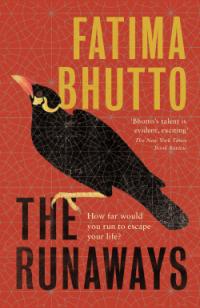
Over 11 days of talks, readings, poetry and performance, the festival features Elizabeth Day, Armistead Maupin, Brett Anderson, Heather Morris, Lemn Sissay, Anthony Daniels (C-3PO), Nikki Giovanni, Fatima Bhutto and Jung Chang.
The festival once again opens with Poetry International, Southbank Centre’s longest running festival, founded by Ted Hughes, former poet laureate, in 1967. This year follows the theme of disruption.
The Purcell Room in Queen Elizabeth Hall reopened in April 2018 following almost three years of refurbishment. With new improved facilities and acoustics, this intimate wood-panelled auditorium provides a platform for music and performance events, a variety of talks and debates, plus readings of classical and modern literature.
The world-renowned venue has played host to some of the biggest names of the 20th century and beyond, including David Bowie, Daniel Barenboim, Marianne Faithfull and Radiohead’s Jonny Greenwood.
Purcell Room is located in Queen Elizabeth Hall.
London Literature Festival
17 – 27 Oct 2019
poetry – spoken word & live literature
# website Queen Elizabeth Hall / Purcell Room
• fleursdumal.nl magazine
More in: - Book Stories, Archive A-B, Art & Literature News, AUDIO, CINEMA, RADIO & TV, Fatima Bhutto, Literary Events, Poetry International, REPRESSION OF WRITERS, JOURNALISTS & ARTISTS

Oh! Snatched Away in Beauty’s Bloom
Oh! snatched away in beauty’s bloom,
On thee shall press no ponderous tomb;
But on thy turf shall roses rear
Their leaves, the earliest of the year;
And the wild cypress wave in tender
gloom:
And oft by yon blue gushing stream
Shall sorrow lean her drooping head,
And feed deep thought with many a dream,
And lingering pause and lightly tread;
Fond wretch! as if her step disturbed the
dead!
Away! we know that tears are vain,
That death nor heeds nor hears distress:
Will this unteach us to complain?
Or make one mourner weep the less?
And thou – who tell’st me to forget,
Thy looks are wan, thine eyes are wet.
George Gordon Byron
(1788 – 1824)
Oh! Snatched Away in Beauty’s Bloom
(Poem)
• fleursdumal.nl magazine
More in: Archive A-B, Archive A-B, Byron, Lord
Thank you for reading Fleurs du Mal - magazine for art & literature